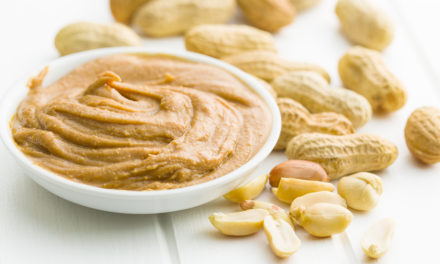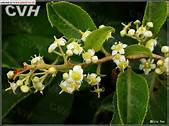 A number of studies have shown natural therapies to be effective for women suffering with dysmenorrhea. Research appearing in the Journal of Alternative and Complementary Medicine (February 2009, 15(2): 129-132) compared the effect of ginger, mefenamic acid and ibuprofen on the pain of dysmenorrhea. The subjects of the study were 150 students over the age of 18 suffering from primary dysmenorrheal. They were divided into three groups and given 250 mg of ginger rhizome powder, 250 mg of mefenamic acid or 400 mg of ibuprofen. They took the dosage four times each day for three days; beginning with the start of their menstrual period. Dysmenorrhea symptoms decreased in all groups, and there was no difference in the amount of relief experienced by the women taking the herb and the women taking drugs. Ginger was as effective as the drug therapies, and was free of side-effects.
A number of studies have shown natural therapies to be effective for women suffering with dysmenorrhea. Research appearing in the Journal of Alternative and Complementary Medicine (February 2009, 15(2): 129-132) compared the effect of ginger, mefenamic acid and ibuprofen on the pain of dysmenorrhea. The subjects of the study were 150 students over the age of 18 suffering from primary dysmenorrheal. They were divided into three groups and given 250 mg of ginger rhizome powder, 250 mg of mefenamic acid or 400 mg of ibuprofen. They took the dosage four times each day for three days; beginning with the start of their menstrual period. Dysmenorrhea symptoms decreased in all groups, and there was no difference in the amount of relief experienced by the women taking the herb and the women taking drugs. Ginger was as effective as the drug therapies, and was free of side-effects.
Other research, appearing in the Western Journal of Surgical Gynecology (1954;62:610-611) demonstrated the value of a combination of niacin, rutin and vitamin C for alleviating dysmenorrhea symptoms. Eighty women between the ages of 15 and 44 took 100 mg. of niacin two time each day, increasing the frequency of the dosage to every two or three hours when symptoms were present. About 90% of the subjects experienced relief from this treatment. A combination of 60 mg of rutin and 300 mg of vitamin C seemed to potentiate the treatment. The women experienced relief for several months after the treatment was discontinued.
Magnesium has been shown to be useful. In the journal Zentralbl Gynakol (1989;111:755-760). In a double-blind study, over 80% of subjects receiving magnesium for six months experienced a reduction in symptoms. The group receiving the magnesium also had a reduction in prostaglandin F2a (which inhibits progesterone production and may be implicated in dysmenorrhea).
In a study appearing in the Indian Journal of Medical Research (April 1996;103:227-231), either thiamin or placebo was given to 556 girls betwent eh ages of 12 and 21, all of whom suffered from dysmenorrhea. The subjects receiving 100 mg/day of thiamin over a 90 day period had very good results. Most (95%) were either completely cured or most of their pain was completely relieved.
Other studies have shown the value of spinal manipulation and dietary changes. As anyone who works in natural health care knows, dysmenorrhea is one symptom that responds very well to natural health care.






